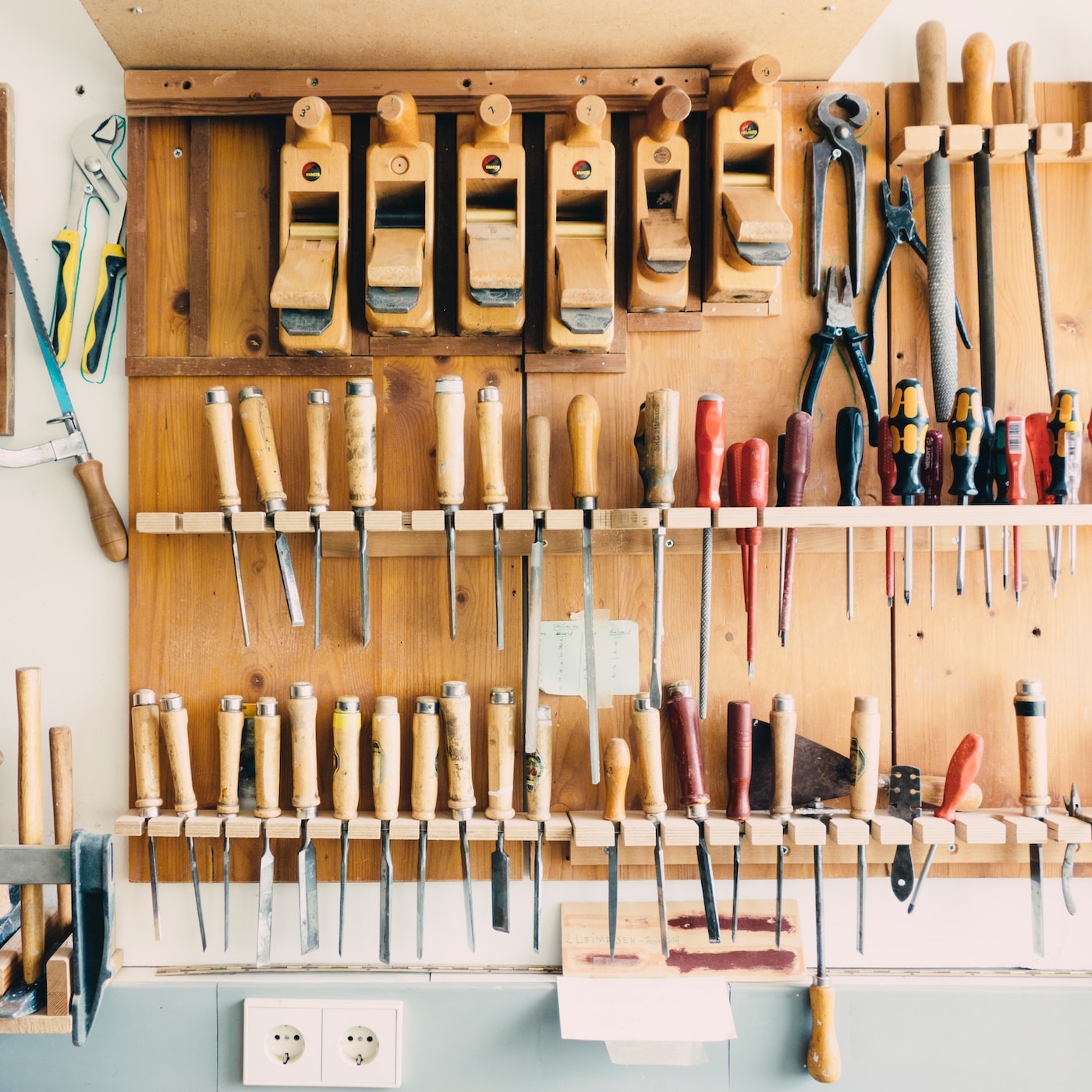More and more people are choosing to give DIY projects a go, so it’s important to have a few basic toolkit essentials at the ready. These are the tools that should see you through a range of small, crafty DIY projects. Once you’ve got these toolkit essentials, you can then build up your supplies based on the specific kinds of projects you’ll be undertaking. Get your DIY toolkit sorted with these basic supplies.
Snapshot Survey
Thanks for sharing your thoughts!
Please subscribe for your personalized newsletter:
Successfully subscribed!
Thank you for subscribing! Check your inbox for personalized content.
1. Scissors
Scissors are a must when it comes to DIY toolkit essentials. Choose a quality pair and make sure that the blades are sharp. To prevent blades from dulling, try setting aside different scissors for different crafts. Keep a pair strictly for fabric, another for paper, and another for everything else.
2. Craft Glue
Craft glue is another DIY toolkit essential. Good craft glue can be used on anything from paper, fabric, wood, and metal. If you want to step it up, and are after something that has a strong hold and dries quickly, then you can always invest in a glue gun. They’re not that expensive and can be found at department and craft stores.
3. Measuring Tape
A lot of DIY projects require looking at measurements. Make sure you have a measuring tape at your disposal. While a ruler is fine, a measuring tape is much more flexible. You’re able to bend it around corners and curves for more accurate measurements and readings.
4. Craft Blade
Retractable craft blades are great for going where scissors cannot. A sharp craft blade is ideal for making precision cuts. Use one to cut anything from paper, cardboard, and foam.
"Finding creativity in every aspect of life, women constantly seek out new outlets for their talents. Among one such talent is the gift for preserving memories in an innovative, artistic way. If you're looking for some fresh inspiration, check out these fantastic scrapbook ideas to add a touch of personal flair to your collection. Let your creativity bloom!"
5. Marking Implements
DIY projects often involve a lot of planning and rough drafts. You’ll need marking implements to help you mark up your designs. Chalk is great for projects, especially those involving fabric, since the chalk doesn’t permanently mark surfaces. Pencils are also good options for DIY projects involving wood and other sturdy materials
Gallery Spotlight
Save and share the images that inspire you. Tag @allwomenstalk to get featured.
Save
6. Paint Brushes
Keep a few paint brushes at the ready in case your DIY project involves a new coat of paint. For larger projects, like furniture restoration and room refurbishments, you might need a few bigger brushes and paint rollers at the ready.
7. Sewing Kit
Even if you’re not the best at sewing, it helps to have a basic sewing kit handy. The supplies you need may vary depending on the difficulty of your DIY project, but you’ll find that most projects only require the basics. Look out for small or travel-sized sewing kits that contain things like a needle, thread, threader, and pins.
8. Seam Ripper
If you’re sewing kit doesn’t include one then definitely get your hands on a seam ripper. They’re a must if you ever find yourself altering or taking apart clothing. Use these sharp, hooked tools for slicing through stitches and seams in a matter of seconds.
9. Cutting Mat
Protect your working surfaces with a cutting mat or board. Mats that feature grids and lines will also be able to do double duty acting as guides when you’re cutting.
10. Toolbox
Once you’ve got your tools together, you’ll need somewhere to store them. Keep your tools all in one place with a designated DIY toolbox. You could use anything from a tackle box to an empty shoe box to a designated desk drawer. The main thing is that your tools are organised and in a place that you’ll be able to get to whenever you need them.
These are the kinds of tools you’ll need to take on small fashion and craft DIY projects. For handyman-style projects you’ll need quite a different range of tools, which I can’t say I’m too familiar with. Are you a fan of DIY projects? What are your DIY toolkit essentials?
Snapshot Survey
Thanks for sharing your thoughts!
Please subscribe for your personalized newsletter:
Successfully subscribed!
Thank you for subscribing! Check your inbox for personalized content.
Comments

Don't Miss the Latest Version
Get the latest stories, save favorites, and share with friends — all in one place.
Create your profile. Earn badges. Level up your reading.
Join Allwomenstalk to track your streaks, collect badges, and earn XP for the things you already do—reading, sharing, and taking quizzes.
- 🔥Daily streaks with gentle boosts for 3, 7, and 30 days.
- 🏅Collect badges like Reader I–III, Socialite, and Quiz Ace.
- ⚡️Earn XP for reads, deep reads, likes, comments, and shares.
It’s free. Takes 30 seconds. Already have an account? Sign in.




Feedback Junction
Where Thoughts and Opinions Converge